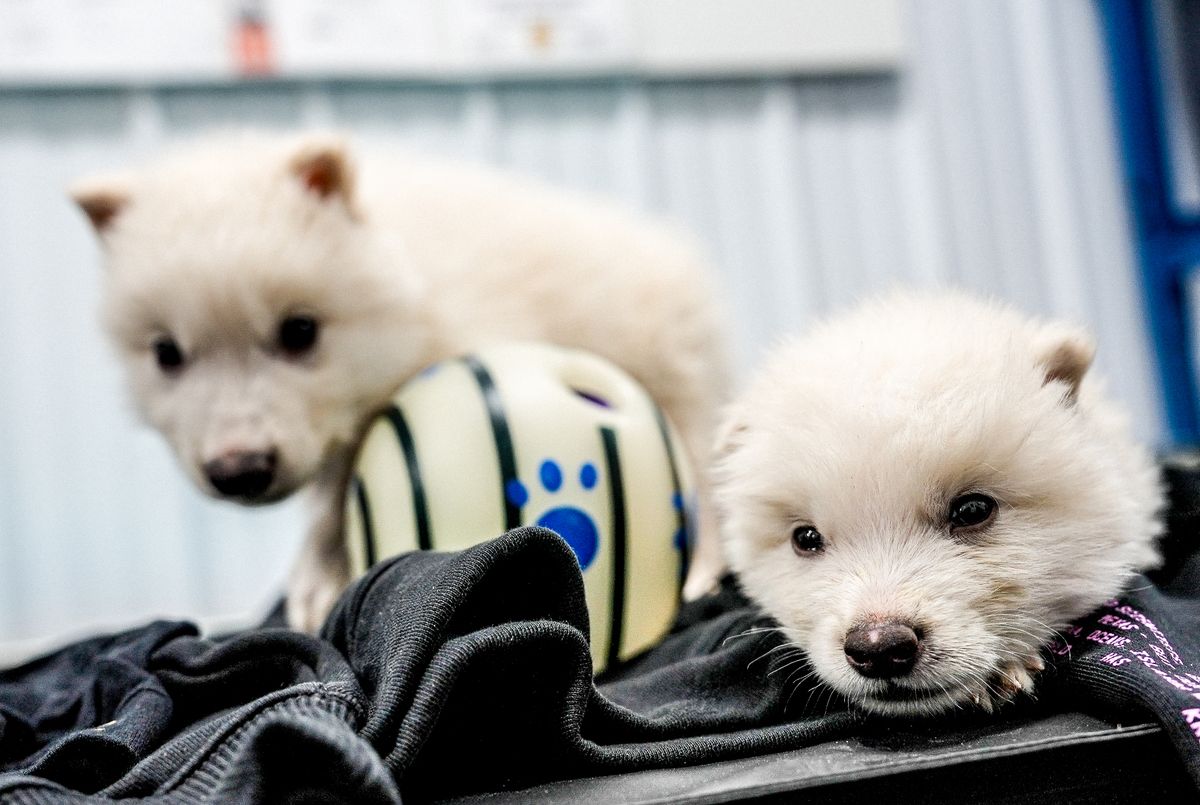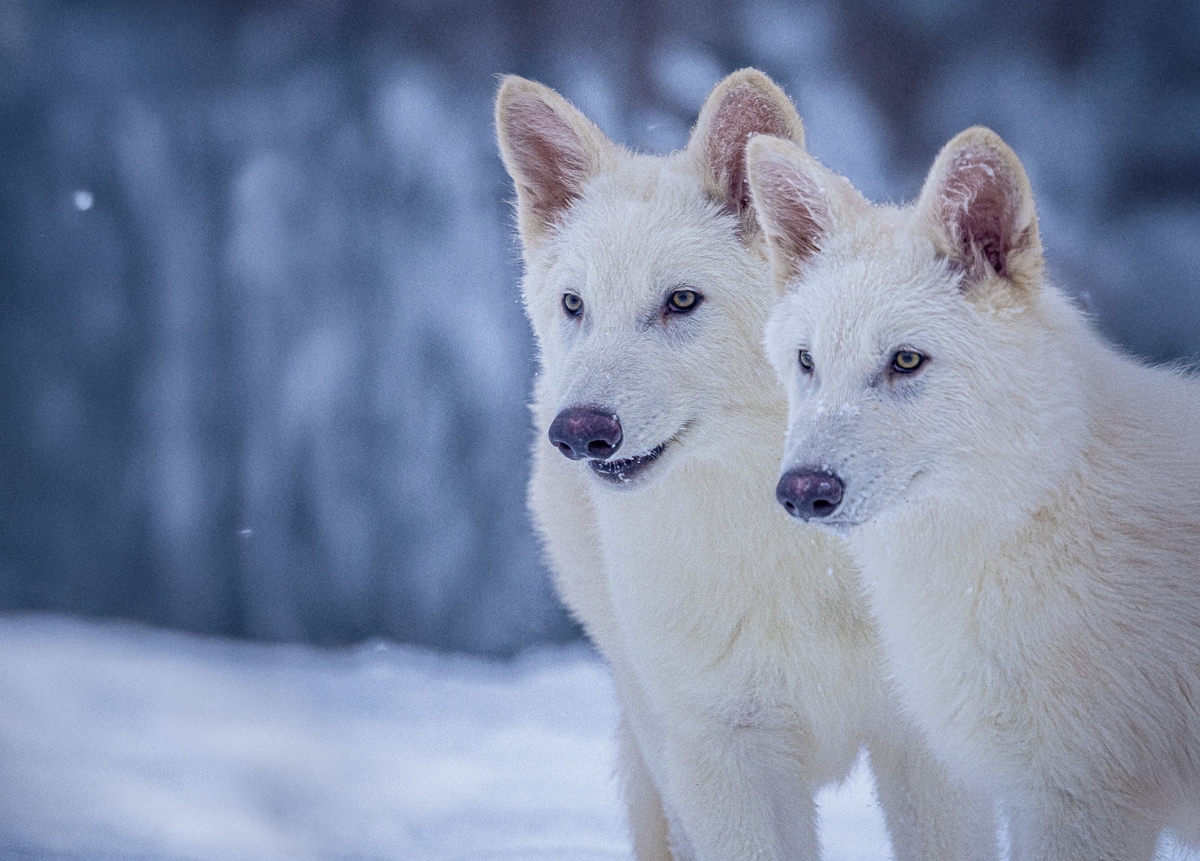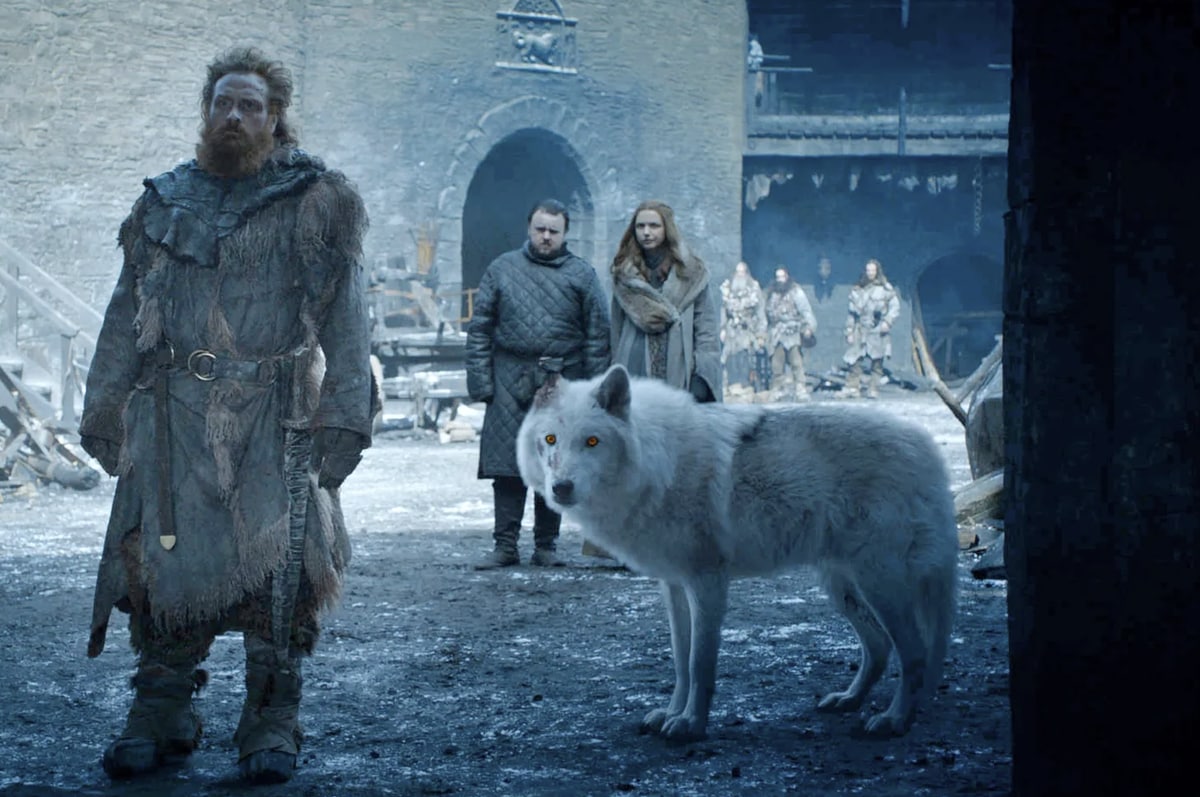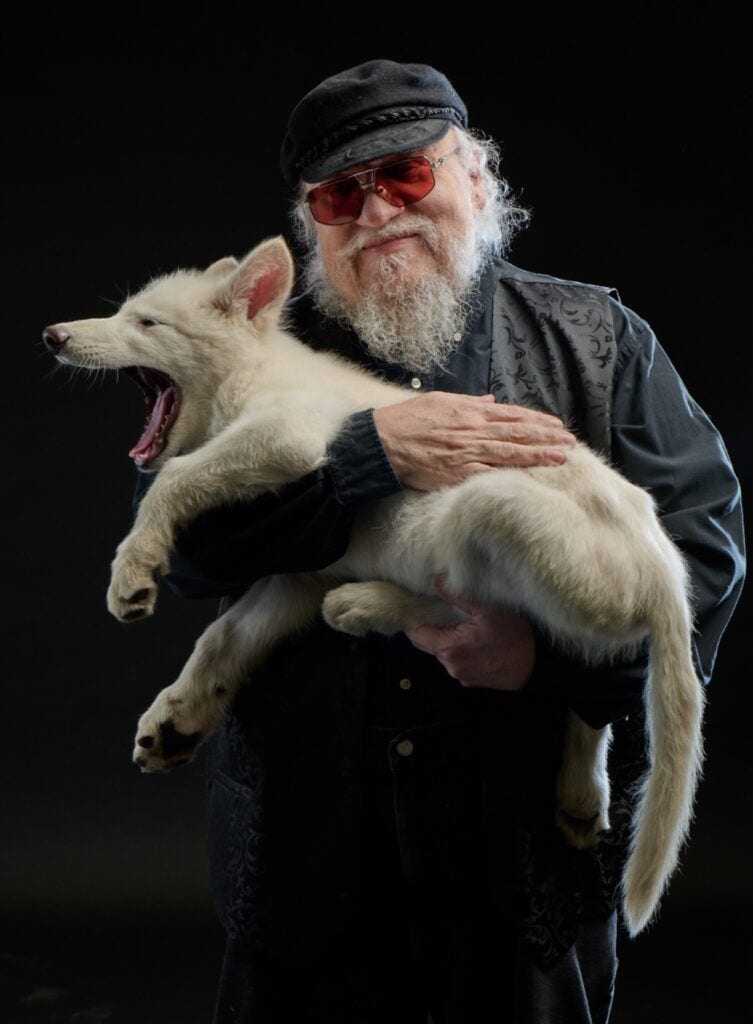A group of scientists announced they've accomplished de-extinction. Yesterday, news broke that a biotech company managed to revive a version of an ancient breed of wolf that wandered North America some 12,000 years ago thanks to ancient fossil DNA. The resulting wolves are something close to a dire wolf, the ancient animal that played a prominent role in the "Game of Thrones" series.
Colossal Biosciences, a Dallas-based biotech company, is responsible for the achievement, publishing its findings in a press release. The company shed light on the de-extinction process, revealing that they used gene-editing technology on grey wolves, implanting the modified embryos in surrogate dog mothers.
"Our team took DNA from a 13,000-year-old tooth and a 72,000-year-old skull and made healthy dire wolf puppies," said Ben Lamm, the company's CEO.
"It was once said, 'any sufficiently advanced technology is indistinguishable from magic.' Today, our team gets to unveil some of the magic they are working on and its broader impact on conservation."
Colossal bred three healthy pups, with all having dense white coats and a larger size than the grey wolf. They're named Romulus, Remus, and Khaleesi, a nod to the fantasy series.
Researchers shared that the technology could be used to prevent animals from going extinct, a challenge that has been looming as the world develops and becomes more inhospitable to animals.
George R.R. Martin's response
George R.R. Martin, writer of "A Song of Ice and Fire," the series of books that inspired "Game of Thrones," shared the findings in his blog. He revealed that he met the pups back in February. "Welcome to Direwolf Day," he wrote.
Martin also shared a photo of himself holding onto one of the dogs, suggesting that his visit to the company's headquarters was maybe related to one of his future projects.
"Here’s me and Romulus (Or maybe Remus. They’re twins, and hard to tell apart)."
,type=downsize)








